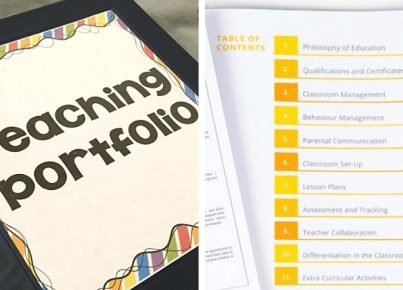Introduction
Imposter Syndrome is a psychological pattern of self-doubt and insecurity, often manifested as the belief that one’s success is undeserved and that it is just a matter of time before one is exposed as a fraud. It is a phenomenon that affects various professional fields, including teaching. In this profession, imposter syndrome can negatively affect classroom dynamics, teaching quality, and personal well-being. This article aims to discuss ways for teachers to cope with and overcome imposter syndrome.
1. Recognize your feelings
It is essential to be aware of the feelings related to imposter syndrome – fear of being exposed as an incompetent teacher, comparing yourself to others, or doubting your qualifications. Identifying these emotions can help you better understand and address them.
2. Acknowledge your achievements
Often, individuals suffering from imposter syndrome minimize their accomplishments or attribute them to luck or external factors. As a teacher, it’s important to remind yourself of your qualifications, experience, and the successes you’ve had in the classroom. This helps build confidence and reinforces the fact that you have earned your position.
3. Seek support from colleagues
Sharing your feelings with trusted colleagues or mentors can be incredibly beneficial in overcoming imposter syndrome. By opening up, you may find that others have experienced similar emotions and can offer insights and advice on how they have managed these feelings.
4. Embrace imperfection
Nobody is perfect – not even the most seasoned professionals! Accepting that you will make mistakes as a teacher is crucial for personal growth and development. When we embrace failures or imperfections as learning opportunities instead of catastrophes, we can positively impact our self-esteem.
5. Adopt a growth mindset
With a growth mindset, individuals believe they can improve through continuing education, hard work, and perseverance. Embrace professional development opportunities and learning resources available to teachers to refine your skills and stay updated on the latest pedagogical techniques.
6. Recognize the impact you make
Remember that as a teacher, you are positively affecting your students’ lives, both academically and personally. Even if it does not feel like it at times, you are making a difference in their learning journey and helping them grow.
7. Practice self-compassion
Be kind to yourself – remember that feelings of imposter syndrome affect many professionals, even those with years of experience. Treat yourself with the same empathy and understanding that you extend to your students or colleagues facing difficulties.
Conclusion
Dealing with imposter syndrome as a teacher can be challenging, but identifying and addressing these emotions is crucial for both personal well-being and professional effectiveness. By recognizing achievements, embracing imperfections, adopting a growth mindset, seeking support, and practicing self-compassion, you can work toward overcoming imposter syndrome and become a more confident educator.



